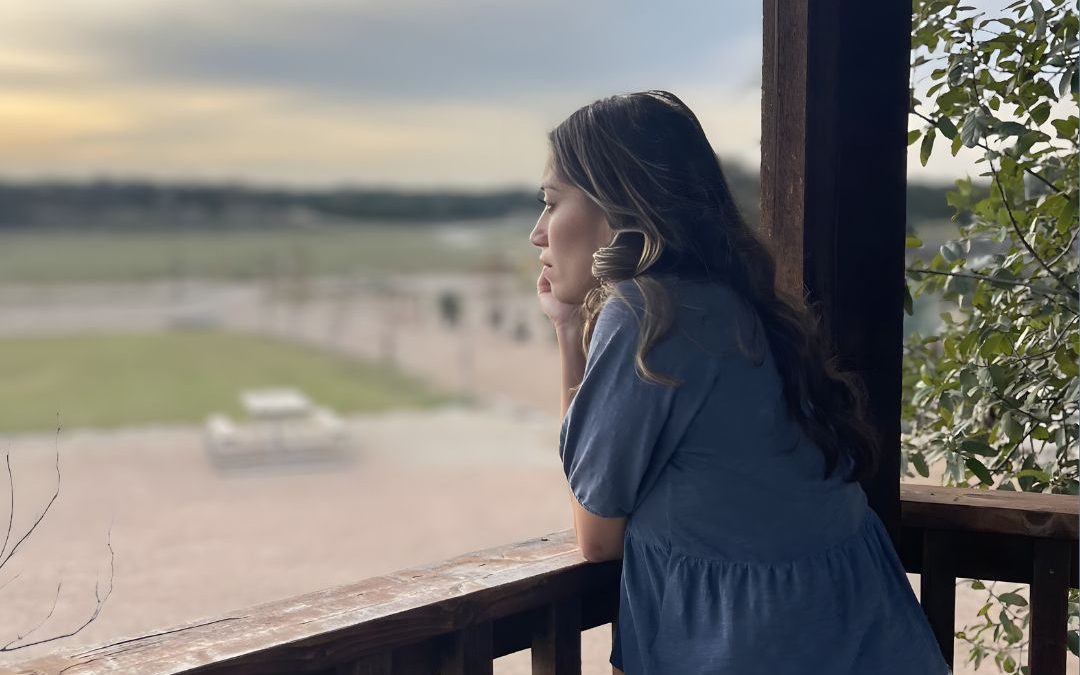
Christian Mindfulness: Finding Stillness Amid Holiday Chaos
The holidays are supposed to be full of joy and family time, but they can often feel more stressful than peaceful. The music, the gatherings, the extra activities, and the rush to make everything just right can leave us tired and distant from the parts of the season that matter most. Even in a city like San Antonio, where the winter stays mild, the pace can be anything but calm.
Christian mindfulness offers a different way to move through this time of year. It is not about having perfect peace or making everything quiet. It is about gently shifting focus toward something steadier, our connection with God. Practicing Christian mindfulness during the busy season can help us find more stillness inside, even when the outside feels too full. It is one way that Christian counseling in San Antonio supports the choice to tune out the noise and tune in to what matters.
What is Christian Mindfulness?
At its heart, Christian mindfulness is simply learning to pause and set our minds on God. It does not require silence or a perfect setting. Instead, it is about bringing our attention back to Jesus throughout the day, especially when things feel scattered or rushed.
Unlike some types of mindfulness that focus on emptying the mind or staying in the present moment without direction, Christian mindfulness invites us to stay aware while staying connected to our faith. We might whisper a prayer in the car line, pull back from a stressful moment to listen for God’s peace, or quietly remember a favorite verse when we feel overwhelmed.
This kind of focus does not make the stress disappear, but it helps us move through life with more calm and trust. It gives us room to breathe in God’s presence, even when noise and activity are all around us.
Why the Holidays Feel Extra Hectic
There is a lot that piles on in late December. Family visits, school events, holiday sales, and packed roads can all pull at our attention. In San Antonio, the schedule may include church services, local events, and big gatherings, all good things, but they fill up our calendars fast.
On top of that, there is often pressure to get it all right. Make the house feel welcoming. Get the perfect gift. Have the best party. Keep the kids happy. It builds up, even when we do not mean for it to. When we try to keep up with everything, even fun stuff can start to feel heavy.
For many of us, this time of year also brings old grief or fresh sadness. We may remember people we have lost or notice gaps in our relationships. All of that can make things feel even more crowded inside. When stress, joy, pressure, and sadness all come at once, it is no wonder our hearts feel tired.
Simple Ways to Practice Stillness with God
You do not need a long retreat or a special room to practice mindfulness with God. Even just a few minutes here and there can help you feel more grounded. Try starting simple and focus on what brings you back to peace.
• Begin or end the day with a short prayer or Bible verse. A quiet moment before everyone wakes up or after the house has settled can shift your focus in gentle ways.
• Try deep breathing while repeating a verse you love. Something short like “Be still and know that I am God” can help slow your thoughts.
• Step outside for a short walk. Look for signs of God’s peace in the sky, the trees, or the way daylight moves across your street.
These moments are not about getting it right. They are about noticing the presence of peace that is already here and allowing space for it to rise to the surface.
Making Space for Mindfulness in Family Life
Stillness does not have to be a solo activity. In fact, inviting your family into these small moments can make them feel more connected, not just to you, but to faith as well.
• Share quiet time as a family, even just for a few minutes. This could mean praying together before bed or sitting in silence after reading a verse aloud.
• Turn off screens for a short evening break. This helps everyone unplug and creates space for conversation or quiet time.
• Light a small candle at dinner to remind everyone of God’s nearness. That soft light can be a calming presence in a busy home.
These are not big changes. They are small pauses that remind us we do not have to move at the world’s speed. They teach kids and adults alike how to make space for God in the middle of everyday life. They give families simple ways to share more peace with one another.
Faith-Based Support for Mindful Living
If finding moments of peace feels difficult, there are resources and guidance available. At La Luz Counseling in San Antonio, our sessions can be customized to include Christian principles and spiritual practices, offering a faith-based path for those looking to deepen both mindfulness and emotional well-being. We welcome individuals as young as 4, teens, adults, families, and couples, making it easy for your whole family to receive support that fits all life stages and needs.
With virtual and in-person appointments, bilingual services in English and Spanish, and no waitlist, getting help does not have to add to your stress. If this season exposes old anxieties or fresh overwhelm, working with a counselor who understands Christian mindfulness can give you effective tools and encouragement for daily life.
Finding True Stillness This Season
Holidays do not have to be perfect to be meaningful. When we slow down and focus on what is most steady, our faith and how we show up for each other, peace becomes easier to find. Stillness does not take us out of the season, it pulls us deeper into what really matters.
Through Christian mindfulness, we can step away from the rush and focus on something lasting. We do not have to wait until stress fades or the noise ends. We can begin now, with a quiet breath or a gentle prayer.
And if that peace ever feels hard to reach, we are not meant to figure it out alone. Sometimes, talking with someone who understands both faith and emotional health makes all the difference. When you are ready, we are here to walk with you.
We offer guidance that connects emotional care with faith and makes space for honest conversations, quiet reflection, and steady growth. Our approach to Christian counseling in San Antonio can help whether you are feeling overwhelmed, disconnected, or unsure how to slow down. You are not alone. At La Luz Counseling, we are here to walk alongside you. Reach out when you are ready to talk.






Recent Comments